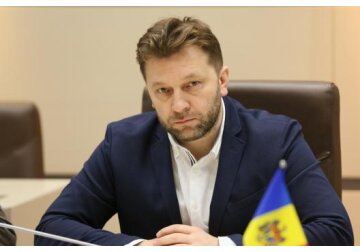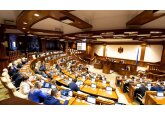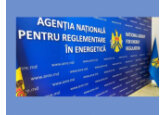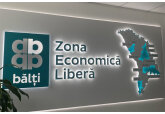
Some useless bureaucratic procedures will be abolished in Moldova, as well as the transparency of state control will be increased.
The Ministry of Economy, together with the Secretariat of the Economic Council under the Prime Minister, has prepared a package of legislative changes aimed at reducing administrative pressure on businesses, abolishing “useless paperwork” and debureaucratization procedures that burden businesses. During a briefing on Monday, Minister of Economy Dumitru Alaiba said that some of the changes relate to labor relations: some provisions of labor legislation will no longer be mandatory, and economic agents will be able to apply them optionally, if desired. Among them: daily accounting of working time, annual vacation planning, development of internal regulations that are copied and transferred from one company to another, communication of an enterprise with its employees through information panels - these are formalities that are performed only for inspections and are irrelevant in the 21st century. According to Dumitru Alaiba, information about workers will not be transferred to military centers, since it has long existed in databases; the obligation of the employer to pay vacation pay in advance will be excluded, and when paying salaries set in foreign currency, the economic agent will be able to use not only the rates of the National Bank, but also the rates of the country's commercial banks. The second component of the bill concerns state control. “State control bodies will be prohibited from applying fines to new economic agents registered less than 3 years ago, except for cases of serious violations. Regulatory authorities will provide consultations to such companies. Meanwhile, before the audit, companies will receive checklists indicating the scope of control. Economic agents will have the right to take photos / videos of the actions of inspectors - this will eliminate the possibility of corruption during state control," Dumitru Alaiba said. The project also provides for the abolition of the sanitary book - instead, people who work in areas of increased risk to public health, for example, in the field of catering, will be able to obtain a medical certificate from a family doctor, and not only in one of the three competent institutions, as is currently the case. This practice has long been used in the EU countries. Another innovation is the obligation to publish explanatory notes to laws so that the purpose of the introduced changes is clear. This will reduce the number of complaints and requests for interpretation of certain legislative and regulatory changes. According to Dumitru Alaiba, the bill is designed to simplify the conditions for doing business, providing economic agents with more time and space for development and investment, and is also designed to reduce the risks of corruption. He also specified that this is one of the packages of legislative changes aimed at facilitating entrepreneurial activity in Moldova. It is planned that broad public consultations on the project will be organized in the near future.// 05.12.2022 — InfoMarket







